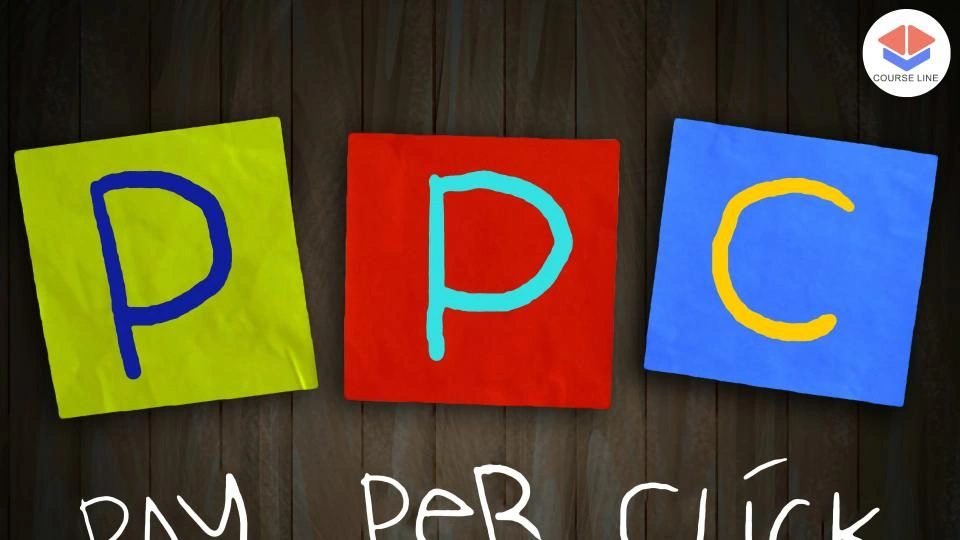Course Features
Price
Study Method
Online | Self-paced
Course Format
Reading Material - PDF, article
Duration
7 hours, 55 minutes
Qualification
No formal qualification
Certificate
At completion
Additional info
Coming soon
- Share
Overview
Phlebotomy is a critical skill in modern healthcare, essential for diagnosing diseases, monitoring treatments, and conducting medical research. The Phlebotomy Level 8 Advanced Diploma offers an in-depth exploration of advanced blood collection techniques, laboratory procedures, patient care, and infection control, ensuring that graduates are fully equipped for professional practice in clinical and diagnostic settings.
The course begins with an Introduction to Phlebotomy, covering the role of phlebotomists in healthcare, basic anatomy and physiology related to blood collection, and an overview of phlebotomy equipment. Understanding blood composition and hematology basics is crucial for performing safe and accurate sample collection.
Legal and ethical considerations are essential in any clinical practice. The Legal and Ethical Considerations in Phlebotomy module covers patient rights, confidentiality, informed consent, and UK healthcare regulations, ensuring that phlebotomists adhere to best practices and professional standards.
In Advanced Phlebotomy Techniques, students will master venipuncture, capillary puncture, pediatric and geriatric phlebotomy, and handling challenging veins and special patient cases. This module also explores techniques for working with patients with special needs, ensuring safe and effective blood collection in all clinical scenarios.
The Laboratory Procedures and Diagnostics module covers specimen handling, transport, and quality control in laboratory settings. Students will gain insights into blood analysis techniques and understanding laboratory reports, which are crucial for accurate diagnostic testing.
Ensuring infection control and safety is a top priority in phlebotomy. The Infection Control and Safety module provides in-depth knowledge of bloodborne pathogen prevention, PPE usage, emergency protocols, and managing accidents in clinical settings.
Effective patient communication and care play a crucial role in phlebotomy. In this module, students will learn how to establish patient trust, manage anxiety, communicate effectively in clinical environments, and address cultural sensitivities.
The Advanced Clinical Scenarios in Phlebotomy module prepares learners to handle hematomas, contaminated specimens, emergency procedures, and collaboration with multidisciplinary teams. These real-world applications help enhance critical thinking and problem-solving skills in clinical settings.
Staying updated with emerging trends and innovations is vital for career growth. The Research and Future Trends in Phlebotomy module explores technological advancements, automation in blood testing, career development opportunities, and the future of phlebotomy in diagnostics.
The course also includes a hands-on Practical Skills Assessment, where students will apply their skills in simulated scenarios, analyze case studies, and receive expert feedback.
Finally, the Capstone Project allows learners to design patient-centered phlebotomy protocols, address clinical challenges, and present research findings, ensuring a deep understanding of professional practice and innovation in phlebotomy.
By completing this diploma, learners will gain advanced skills, industry knowledge, and practical experience to become highly competent phlebotomy professionals ready to excel in healthcare, research, and clinical laboratory environments.
Who is this course for?
Phlebotomy is a critical skill in modern healthcare, essential for diagnosing diseases, monitoring treatments, and conducting medical research. The Phlebotomy Level 8 Advanced Diploma offers an in-depth exploration of advanced blood collection techniques, laboratory procedures, patient care, and infection control, ensuring that graduates are fully equipped for professional practice in clinical and diagnostic settings.
The course begins with an Introduction to Phlebotomy, covering the role of phlebotomists in healthcare, basic anatomy and physiology related to blood collection, and an overview of phlebotomy equipment. Understanding blood composition and hematology basics is crucial for performing safe and accurate sample collection.
Legal and ethical considerations are essential in any clinical practice. The Legal and Ethical Considerations in Phlebotomy module covers patient rights, confidentiality, informed consent, and UK healthcare regulations, ensuring that phlebotomists adhere to best practices and professional standards.
In Advanced Phlebotomy Techniques, students will master venipuncture, capillary puncture, pediatric and geriatric phlebotomy, and handling challenging veins and special patient cases. This module also explores techniques for working with patients with special needs, ensuring safe and effective blood collection in all clinical scenarios.
The Laboratory Procedures and Diagnostics module covers specimen handling, transport, and quality control in laboratory settings. Students will gain insights into blood analysis techniques and understanding laboratory reports, which are crucial for accurate diagnostic testing.
Ensuring infection control and safety is a top priority in phlebotomy. The Infection Control and Safety module provides in-depth knowledge of bloodborne pathogen prevention, PPE usage, emergency protocols, and managing accidents in clinical settings.
Effective patient communication and care play a crucial role in phlebotomy. In this module, students will learn how to establish patient trust, manage anxiety, communicate effectively in clinical environments, and address cultural sensitivities.
The Advanced Clinical Scenarios in Phlebotomy module prepares learners to handle hematomas, contaminated specimens, emergency procedures, and collaboration with multidisciplinary teams. These real-world applications help enhance critical thinking and problem-solving skills in clinical settings.
Staying updated with emerging trends and innovations is vital for career growth. The Research and Future Trends in Phlebotomy module explores technological advancements, automation in blood testing, career development opportunities, and the future of phlebotomy in diagnostics.
The course also includes a hands-on Practical Skills Assessment, where students will apply their skills in simulated scenarios, analyze case studies, and receive expert feedback.
Finally, the Capstone Project allows learners to design patient-centered phlebotomy protocols, address clinical challenges, and present research findings, ensuring a deep understanding of professional practice and innovation in phlebotomy.
By completing this diploma, learners will gain advanced skills, industry knowledge, and practical experience to become highly competent phlebotomy professionals ready to excel in healthcare, research, and clinical laboratory environments.
Requirements
Phlebotomy is a critical skill in modern healthcare, essential for diagnosing diseases, monitoring treatments, and conducting medical research. The Phlebotomy Level 8 Advanced Diploma offers an in-depth exploration of advanced blood collection techniques, laboratory procedures, patient care, and infection control, ensuring that graduates are fully equipped for professional practice in clinical and diagnostic settings.
The course begins with an Introduction to Phlebotomy, covering the role of phlebotomists in healthcare, basic anatomy and physiology related to blood collection, and an overview of phlebotomy equipment. Understanding blood composition and hematology basics is crucial for performing safe and accurate sample collection.
Legal and ethical considerations are essential in any clinical practice. The Legal and Ethical Considerations in Phlebotomy module covers patient rights, confidentiality, informed consent, and UK healthcare regulations, ensuring that phlebotomists adhere to best practices and professional standards.
In Advanced Phlebotomy Techniques, students will master venipuncture, capillary puncture, pediatric and geriatric phlebotomy, and handling challenging veins and special patient cases. This module also explores techniques for working with patients with special needs, ensuring safe and effective blood collection in all clinical scenarios.
The Laboratory Procedures and Diagnostics module covers specimen handling, transport, and quality control in laboratory settings. Students will gain insights into blood analysis techniques and understanding laboratory reports, which are crucial for accurate diagnostic testing.
Ensuring infection control and safety is a top priority in phlebotomy. The Infection Control and Safety module provides in-depth knowledge of bloodborne pathogen prevention, PPE usage, emergency protocols, and managing accidents in clinical settings.
Effective patient communication and care play a crucial role in phlebotomy. In this module, students will learn how to establish patient trust, manage anxiety, communicate effectively in clinical environments, and address cultural sensitivities.
The Advanced Clinical Scenarios in Phlebotomy module prepares learners to handle hematomas, contaminated specimens, emergency procedures, and collaboration with multidisciplinary teams. These real-world applications help enhance critical thinking and problem-solving skills in clinical settings.
Staying updated with emerging trends and innovations is vital for career growth. The Research and Future Trends in Phlebotomy module explores technological advancements, automation in blood testing, career development opportunities, and the future of phlebotomy in diagnostics.
The course also includes a hands-on Practical Skills Assessment, where students will apply their skills in simulated scenarios, analyze case studies, and receive expert feedback.
Finally, the Capstone Project allows learners to design patient-centered phlebotomy protocols, address clinical challenges, and present research findings, ensuring a deep understanding of professional practice and innovation in phlebotomy.
By completing this diploma, learners will gain advanced skills, industry knowledge, and practical experience to become highly competent phlebotomy professionals ready to excel in healthcare, research, and clinical laboratory environments.
Career path
Phlebotomy is a critical skill in modern healthcare, essential for diagnosing diseases, monitoring treatments, and conducting medical research. The Phlebotomy Level 8 Advanced Diploma offers an in-depth exploration of advanced blood collection techniques, laboratory procedures, patient care, and infection control, ensuring that graduates are fully equipped for professional practice in clinical and diagnostic settings.
The course begins with an Introduction to Phlebotomy, covering the role of phlebotomists in healthcare, basic anatomy and physiology related to blood collection, and an overview of phlebotomy equipment. Understanding blood composition and hematology basics is crucial for performing safe and accurate sample collection.
Legal and ethical considerations are essential in any clinical practice. The Legal and Ethical Considerations in Phlebotomy module covers patient rights, confidentiality, informed consent, and UK healthcare regulations, ensuring that phlebotomists adhere to best practices and professional standards.
In Advanced Phlebotomy Techniques, students will master venipuncture, capillary puncture, pediatric and geriatric phlebotomy, and handling challenging veins and special patient cases. This module also explores techniques for working with patients with special needs, ensuring safe and effective blood collection in all clinical scenarios.
The Laboratory Procedures and Diagnostics module covers specimen handling, transport, and quality control in laboratory settings. Students will gain insights into blood analysis techniques and understanding laboratory reports, which are crucial for accurate diagnostic testing.
Ensuring infection control and safety is a top priority in phlebotomy. The Infection Control and Safety module provides in-depth knowledge of bloodborne pathogen prevention, PPE usage, emergency protocols, and managing accidents in clinical settings.
Effective patient communication and care play a crucial role in phlebotomy. In this module, students will learn how to establish patient trust, manage anxiety, communicate effectively in clinical environments, and address cultural sensitivities.
The Advanced Clinical Scenarios in Phlebotomy module prepares learners to handle hematomas, contaminated specimens, emergency procedures, and collaboration with multidisciplinary teams. These real-world applications help enhance critical thinking and problem-solving skills in clinical settings.
Staying updated with emerging trends and innovations is vital for career growth. The Research and Future Trends in Phlebotomy module explores technological advancements, automation in blood testing, career development opportunities, and the future of phlebotomy in diagnostics.
The course also includes a hands-on Practical Skills Assessment, where students will apply their skills in simulated scenarios, analyze case studies, and receive expert feedback.
Finally, the Capstone Project allows learners to design patient-centered phlebotomy protocols, address clinical challenges, and present research findings, ensuring a deep understanding of professional practice and innovation in phlebotomy.
By completing this diploma, learners will gain advanced skills, industry knowledge, and practical experience to become highly competent phlebotomy professionals ready to excel in healthcare, research, and clinical laboratory environments.
-
- Overview of Phlebotomy and Its Role in Healthcare 00:10:00
- Anatomy and Physiology Relevant to Phlebotomy 00:10:00
- Blood Composition and Hematology Basics 00:10:00
- Introduction to Phlebotomy Equipment and Supplies 00:10:00
-
- Patient Rights and Confidentiality 00:10:00
- Informed Consent in Phlebotomy 00:10:00
- Ethical Issues in Clinical Settings 00:10:00
- Compliance with UK Regulations and Standards 00:10:00
- Venipuncture Techniques: Best Practices 00:10:00
- Capillary Puncture and Dermal Sampling 00:10:00
- Handling Difficult Veins and Challenging Patients 00:10:00
- Pediatric and Geriatric Phlebotomy 00:10:00
- Phlebotomy for Patients with Special Needs 00:10:00
- Principles of Infection Control in Phlebotomy 00:10:00
- Preventing Bloodborne Pathogen Exposure 00:10:00
- Proper Use of Personal Protective Equipment (PPE) 00:10:00
- Managing Accidents and Emergencies in Phlebotomy 00:10:00
- Managing Hematoma and Other Complications 00:10:00
- Handling Contaminated or Compromised Specimens 00:10:00
- Emergency Procedures in Phlebotomy 00:10:00
- Collaborating with Multidisciplinary Teams 00:10:00
- Simulated Scenarios for Skill Application 00:10:00
- Analyzing Real-World Case Studies 00:10:00
- Feedback and Skill Refinement 00:10:00
- Preparation for Certification and Examinations 00:10:00
- Exam of Phlebotomy Level 8 Advanced Diploma 00:50:00

No Reviews found for this course.
Is this certificate recognized?
Yes, our premium certificate and transcript are widely recognized and accepted by embassies worldwide, particularly by the UK embassy. This adds credibility to your qualification and enhances its value for professional and academic purposes.
I am a beginner. Is this course suitable for me?
Yes, this course is designed for learners of all levels, including beginners. The content is structured to provide step-by-step guidance, ensuring that even those with no prior experience can follow along and gain valuable knowledge.
I am a professional. Is this course suitable for me?
Yes, professionals will also benefit from this course. It covers advanced concepts, practical applications, and industry insights that can help enhance existing skills and knowledge. Whether you are looking to refine your expertise or expand your qualifications, this course provides valuable learning.
Does this course have an expiry date?
No, you have lifetime access to the course. Once enrolled, you can revisit the materials at any time as long as the course remains available. Additionally, we regularly update our content to ensure it stays relevant and up to date.
How do I claim my free certificate?
I trust you’re in good health. Your free certificate can be located in the Achievement section. The option to purchase a CPD certificate is available but entirely optional, and you may choose to skip it. Please be aware that it’s crucial to click the “Complete” button to ensure the certificate is generated, as this process is entirely automated.
Does this course have assessments and assignments?
Yes, the course includes both assessments and assignments. Your final marks will be determined by a combination of 20% from assignments and 80% from assessments. These evaluations are designed to test your understanding and ensure you have grasped the key concepts effectively.
Is this course accredited?
We are a recognized course provider with CPD, UKRLP, and AOHT membership. The logos of these accreditation bodies will be featured on your premium certificate and transcript, ensuring credibility and professional recognition.
Will I receive a certificate upon completion?
Yes, you will receive a free digital certificate automatically once you complete the course. If you would like a premium CPD-accredited certificate, either in digital or physical format, you can upgrade for a small fee.
Course Features
Price
Study Method
Online | Self-paced
Course Format
Reading Material - PDF, article
Duration
7 hours, 55 minutes
Qualification
No formal qualification
Certificate
At completion
Additional info
Coming soon
- Share
PPC Mastery: A Complete Guide to Pay-Per-Click Advertising
Course Line238£490.00Original price was: £490.00.£14.99Current price is: £14.99.Paralegal Level 8 Advanced Diploma
Course Line239£490.00Original price was: £490.00.£14.99Current price is: £14.99.Offshore Engineering Level 3 Advanced Diploma
Course Line238£490.00Original price was: £490.00.£14.99Current price is: £14.99.





